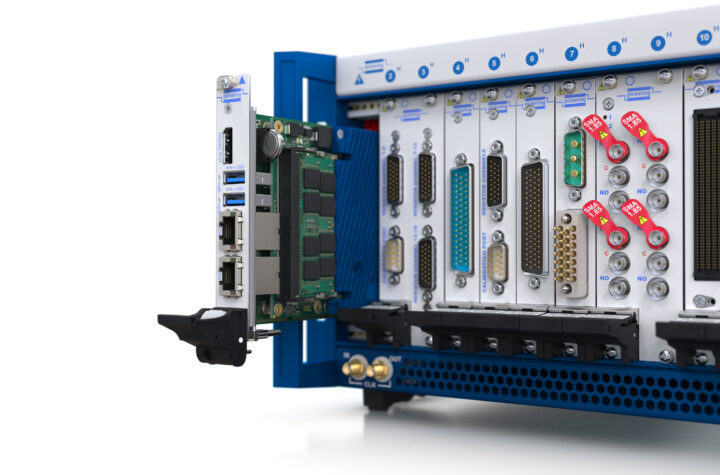
HCC Embedded (HCC), experts in high-quality software components for deeply embedded systems, is setting a new bar for the industry with its Safety Elements out of Context (SEooC) approach to developing reusable software components that can be integrated with systems engineered to meet stringent requirements for safety, quality, and portability. HCC has created the processes and environment to build reusable SEooCs and today introduced its first Element: the HCC SafeTCPIP network stack for use in automotive systems. Future releases will map the standard ISO26262 V-model process to other safety-critical standards such as in aerospace, industrial, and medical device markets.
“Safety standards promote the reuse of proven software elements; however, reusing software in a safety context introduces complex challenges, such as how to do full lifecycle maintenance on essentially off-the-shelf components,” said HCC Embedded CEO Dave Hughes. “HCC has invested extensive time and effort into packaging a SEooC process for deeply embedded software components and we’ve built the full lifecycle to be a manageable part of our customers’ safety development.”
SEooC: Proven Approach to Reusing Embedded Software in Safety-Critical Automotive Systems
Originating in ISO 26262-10, SEooC is defined as a method for using software or hardware components in a vehicle that were not originally designed for that specific project. A software SEooC is developed to a safety standard, in this case ISO 26262, which means that it is developed with all the processes of a full software safety lifecycle and within the design constraints of a safety system. The software components are developed “out of context” to provide a specific function with no awareness of how the component will be used in the target system. The “Element” indicates that this is a unit or module with a specific range of functionality; “safety” indicates that this module is specifically developed in the context of a set of safety requirements. HCC is the first embedded software module vendor to use the SEooC approach to build commercial software Elements, beginning with its SafeTCPIP product.
SafeTCPIP: Commercial TCP/IPv4 Network Stack Developed to ISO 26262 ASIL B Standard
Automotive software developers may require a TCP/IP stack to be integrated into a safety product to guarantee the quality of the networking or to allow it to be used in a safety environment for a supporting, non-safety-critical role such as diagnostics. The defacto network standard for connected cars and in-vehicle safety systems is TCP/IP, but commercially available products are rarely developed to meet safety standards, are only partially certified, or are tightly integrated to a single vendor’s development system and RTOS.
HCC’s SafeTCPIP is a complete TCP/IPv4 network stack developed to the ISO 26262 Automotive Safety Integrity Level (ASIL) B standard. HCC’s SafeTCPIP Element fills a critical market need by giving automotive OEMs and suppliers an off-the-shelf solution that has been independently designed to satisfy TCP/IP networking requirements. The reusability of the TCP/IP stack contributes to long-term stability and reduces development costs.
Critical to the success of this approach, HCC’s SafeTCPIP Element is developed to full ISO 26262 Section 6 processes for integration with automotive systems that require a high safety-integrity level and is supported by an independent software lifecycle for maintenance. The exact verified product that is integrated can be maintained and modified to safety standards independent of any other project that integrates SafeTCPIP. Because it is developed as a SEooC, the Element can be integrated with the company’s other safety development lifecycle.
Visit HCC at Embedded World, 26–28 February 2019, Nürnberg, Germany
Developers can visit HCC Embedded at Hall 4, Stand 318 for a demonstration of how HCC’s Integration TestBench (ITB) can be used to validate SafeTCPIP integrated with any safety project. The TestBench will generate a complete test report by executing SafeTCPIP on the target.
For more information, visit: https://www.hcc-embedded.com/safetcp-ip/
About HCC Embedded
HCC Embedded develops deeply embedded software components “out of context,” which ensures that they can be used as core elements of any system, including those engineered to meet stringent requirements for safety, quality, and portability. Built on a foundation of quality, HCC has a product portfolio of more than 250 embedded components, with deep competencies in reliable flash management, fail-safe file systems, and IPv4/6 networking stacks with associated security protocols, as well as a comprehensive suite of USB host and function software. Since 2002, HCC has supplied these embedded software components to over 2,000 companies globally in a wide range of industries including industrial, medical, and automotive.














More Stories
Cybord TCI – The Future of Manufacturing Integrity
Flexible Magna Manufacturing Solutions: The Key to Success in the Automotive Industry
DuPont technology helps improve EV battery durability and performance